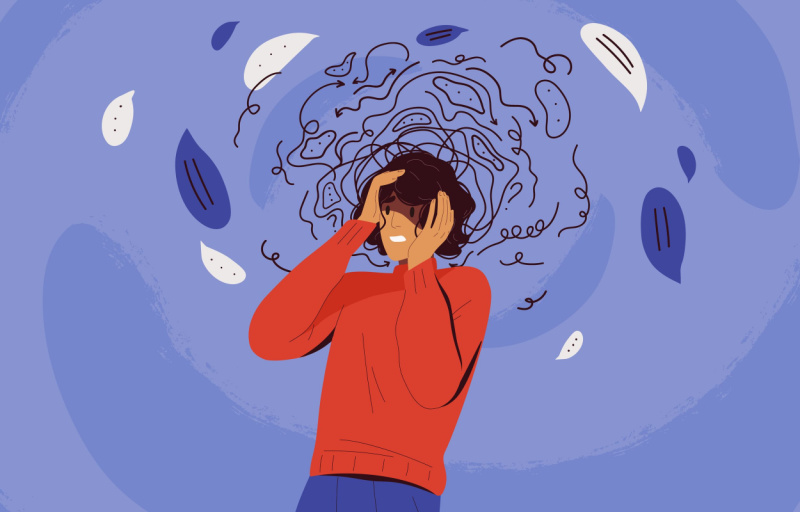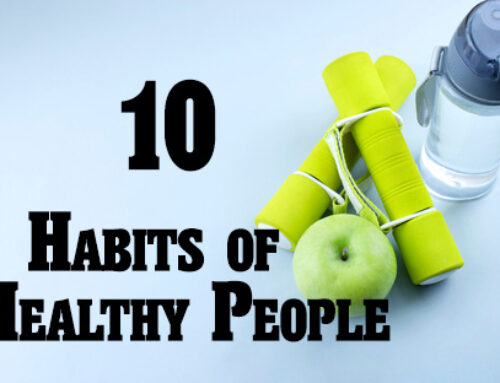The idea that depression and other mental health conditions are caused by an imbalance of chemicals (particularly serotonin and norepinephrine) in the brain is so deeply ingrained in our collective psyche that it seems almost sacrilegious to question it. Antidepressant drugs, which are based on the chemical imbalance theory, represent a $10 billion dollar market in the U.S. alone. According to the CDC, 11 percent of Americans over 12 years old take antidepressants, and they are the second-most prescribed medications (after cholesterol-lowering drugs).
 Yet as popular as the theory that a chemical imbalance causes depression has become, it is riddled with problems. Several new studies have created a momentous shift away from this theory and has a lot of doctors and patients wondering where to turn to next.
Yet as popular as the theory that a chemical imbalance causes depression has become, it is riddled with problems. Several new studies have created a momentous shift away from this theory and has a lot of doctors and patients wondering where to turn to next.
Are depressed patients lacking serotonin or norepinephrine?
Several studies indicate that only 25 percent of depressed patients have low levels of these neurotransmitters. While at the same time, some patients with no history of depression also show low levels of these hormones. Still yet, other depressed patients have abnormally high levels of serotonin and norepinephrine. What if depression isn’t caused by a “chemical imbalance” after all? More specifically, what if depression itself is not a disease, but a symptom of an underlying problem?
That is exactly what the most recent research on depression is telling us. A new theory called the “Immune Cytokine Model of Depression” holds that depression is not a disease itself, but instead a multifaceted sign of chronic immune system activation caused by a low-grade, chronic inflammatory response and is accompanied by increased oxidative stress.
During an inflammatory reaction, chemicals called “cytokines” are produced. These include tumor necrosis factor (TNF)α, interleukin (IL)-1, interferon (IFN)ɣ, and interleukin (IL)-10, among others. Researchers discovered in the early 1980s that inflammatory cytokines produce a wide variety of psychiatric and neurological symptoms which perfectly mirror the defining characteristics of depression. Interestingly enough, antidepressants (particularly SSRIs) have been shown to reduce the production of pro-inflammatory cytokines. This suggests that SSRIs are anti-inflammatory, which would explain their mechanism of action, if inflammation is a primary driver of depression. The research on this topic is robust, and the connection between depression and inflammation is now well-established. But if depression is primarily caused by inflammation, the obvious question that arises is, “What is causing the inflammation?”.
Nine Common Causes of Inflammation and Depression
If you’ve been following our newsletters for any length of time, you know that inflammation is at the root of nearly all modern diseases, including diabetes, Alzheimer’s, cardiovascular disease, autoimmune disease, allergies, asthma, and arthritis. So perhaps it shouldn’t come as much of a surprise that depression is also caused by inflammation and that our lifestyle is the major cause of it.
1. Diet
There are several problems with the modern diet. It is high in foods that provoke inflammation, such as refined flour, excess sugar, oxidized (rancid) fats, trans fats, and a wide range of chemicals and preservatives. And it is low in foods that reduce inflammation, like long-chain omega-3 fats, fermented foods, and fermentable fiber. Numerous studies have associated the Western diet with major depressive disorders.
 2. Obesity
2. Obesity
One of the most harmful consequences of the modern diet has been the dramatic increase in obesity. Obesity is an inflammatory state. Studies have shown higher levels of inflammatory cytokines in obese people, and weight loss is associated with a decrease in those cytokines. Obesity is closely linked with depression, and while that relationship is likely multifactorial and complex, inflammation appears to play a significant role.
3. Gut Health
Disruptions in the gut microbiome and leaky gut (i.e. intestinal permeability) have both been shown to contribute to inflammation and correlate with depression. And numerous studies have linked unfavorable changes to the bacteria inhabiting our gut with major depressive disorders.
4. Stress
Stress may be one of the most obvious causes of depression, but the link between stress and inflammation is less well-known. Research has shown that psychosocial stress stimulates the pro-inflammatory cytokine network. These increases in inflammatory cytokines are in turn closely related to depressive symptoms, as described above.
5. Lack of Physical Activity
There’s a huge amount of evidence indicating that exercise is an effective treatment for depression—in many cases as effective or more so than antidepressant drugs. It has also been shown to prevent depression in healthy people with no pre-existing symptoms. Interestingly enough, while exercise initially produces the same inflammatory cytokines that are associated with depression, that is quickly followed by induction of anti-inflammatory substances. This is known as a hormetic effect, where an initial stressor provokes a compensatory response in the body that has positive, long-term consequences.
 6. Sleep Deprivation
6. Sleep Deprivation
Chronic sleep loss has been shown to increase inflammatory markers even in people that are otherwise healthy. And although temporary sleep deprivation has been used to therapeutically improve depression, chronic sleep loss is a well-known contributing factor to developing depression in the first place.
7. Chronic Infection
Chronic infections produce ongoing inflammation, so it’s no surprise to see that depression is associated with Toxoplasma gondii, West Nile virus, Clostridium difficile, and other pathogens.
8. Dental Caries and Periodontal Disease
Dental caries and periodontal disease are another source of chronic inflammation, and thus a potential cause of depression. According to one large study of over 80,000 adults, researchers found that people with depression were more likely to have tooth loss even after controlling for several demographic and health factors.
9. Vitamin D Deficiency
Low levels of vitamin D are common in Western populations, and there is growing evidence linking vitamin D deficiency to depression. Vitamin D modulates immune responses to infection, including reducing inflammatory markers like TNF-α and IL-1 that are associated with depression. Supplementation with vitamin D to normalize serum 25D levels has been shown to reduce inflammatory markers in some, but not all cases.
The Biggest Problem with the Chemical Imbalance Theory
The early 1980s discovery that inflammatory cytokines produce all of the characteristic signs and symptoms of depression should have made a big splash. For the first time ever, scientists had discovered a class of molecules that were tightly and consistently associated with depression, and, when administered to healthy volunteers, produced all of the symptoms necessary for the diagnosis of depression.
 Unfortunately, the “chemical imbalance” theory continues to be the dominant paradigm for understanding depression nearly 30 years after this profound discovery, despite the weak correlation between serotonin, norepinephrine, and dopamine and depressive symptoms. There are probably several reasons for this—and you’d be correct if you guessed that some of them are financial—but I’ll leave that discussion for another time.
Unfortunately, the “chemical imbalance” theory continues to be the dominant paradigm for understanding depression nearly 30 years after this profound discovery, despite the weak correlation between serotonin, norepinephrine, and dopamine and depressive symptoms. There are probably several reasons for this—and you’d be correct if you guessed that some of them are financial—but I’ll leave that discussion for another time.
This inflammatory model of depression shifts our focus from viewing depression as being a disease caused by a chemical imbalance, which often requires medication to correct, to being a symptom of a deeper, underlying problem. It also leads to entirely new avenues of treatment—many of them more effective and safer than antidepressant drugs. When patients begin to address this underlying cause, their mood improves dramatically and they quickly realize that they are empowered with the ability to heal themselves. The assumption in mainstream medicine that depression is exclusively caused by a chemical imbalance is obviously not true. Too often, these other potential underlying causes go unexplored. The doctor prescribes an antidepressant, the patient takes it, and that’s the end of the discussion. Patients would be well advised to take two important action steps:
1. Adopt an Anti-Inflammatory Diet and Lifestyle
This means eating a nutrient-dense, whole foods diet, getting enough sleep, managing stress, engaging in appropriate (not too little or too much) physical activity, and nourishing your gut.
2. Investigate Other Underlying Causes of Inflammation
On your own or with the help of a good practitioner, explore other possible causes of inflammation that could be contributing to depression. These include gut issues (SIBO, leaky gut, dysbiosis, infections, etc.), chronic infections (viral, bacterial, fungal), low vitamin D levels, dental caries and periodontal disease, exposure to heavy metals and mold or other biotoxins, obstructive sleep apnea, and more.
Our office is dedicated to helping you investigate these solutions to help you become healthier than you have ever been.







